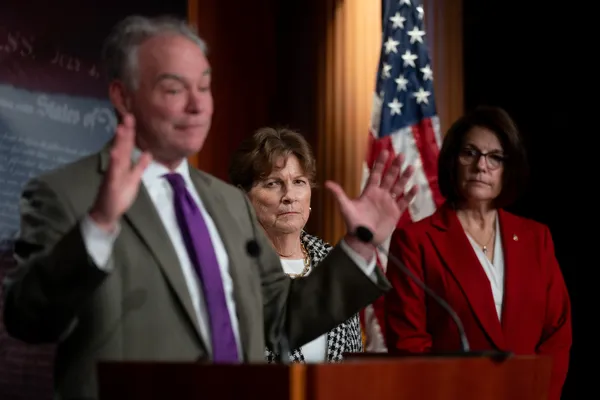
Democrats have conceded in the shutdown struggle without securing a win for health care. Their initial goal was to renew tax credits, aiming to mitigate insurance premium price hikes. This move was also intended to demonstrate their negotiation prowess within President Donald Trump’s political landscape. However, the absence of a clear victory in this area has left many questioning the long-term implications for the health care sector and the broader economy.
The Democrats' strategy was rooted in a broader political objective: to show their resilience and determination to the voters. They wanted to leverage the shutdown to push for a health care win, highlighting their commitment to public welfare. Despite the initial optimism, the outcome was not as expected, raising concerns about the potential implications for health care policy and affordability.
Health insurance premiums, already a significant financial burden for many, are likely to continue their upward trajectory in light of the concession. The absence of renewed tax credits means that insurance companies will have to bear the brunt of rising health care costs, inevitably passing these onto consumers. This could result in increased financial strain for individuals and families, particularly those in lower income brackets who are already struggling to afford coverage.
For investors, the development could result in increased market volatility. Health insurance companies may face financial pressures due to the potential for increased costs. This could impact their profitability and, consequently, their stock prices. Investors with a significant portfolio in the health care sector may need to reassess their investment strategy in response to these changes.
Small businesses may also feel the impact of this development. With the potential for increased health insurance premiums, they could find it more challenging to provide coverage for their employees. This could affect their ability to attract and retain talent, impacting their competitiveness and growth prospects.
Policy-makers, on the other hand, are faced with a complex challenge. They need to find a way to balance the needs of the health care sector while also ensuring affordability for consumers. This task is made all the more daunting by the political climate, which is characterized by deep partisan divides and conflicting priorities.
Overall, the Democrats' concession in the shutdown fight without a health care win raises serious questions about the future of health care policy and affordability in the country. It also underscores the complex interplay between politics and economics, and the profound impact that policy decisions can have on individuals, businesses, and the broader economy.

 Next
Next
Comments (0)
Leave a comment